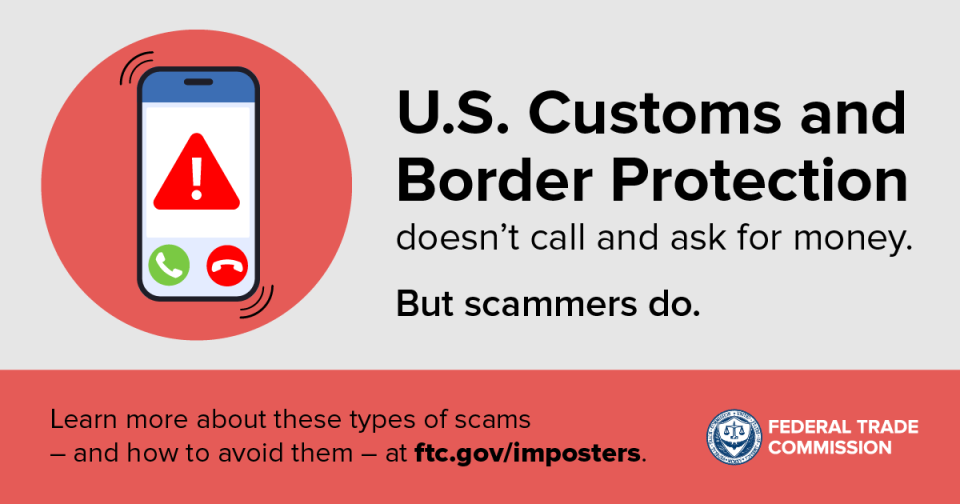
Has the U.S. Border Patrol called you? No, they haven’t. But a scammer might have. In fact, scammers often pretend to be from government agencies to trick you into sending them money or sharing personal information.
The latest twist is imposters who pose as agents and officers from U.S. Customs and Border Protection (CBP). Here’s how the ruse might play out. Scammers send you a recorded message saying illegal items were shipped in your name and have been intercepted. Or they might talk about a “diplomatic pouch.” Or tell you a warrant is out for your arrest. They’ll demand that you pay for more information using cryptocurrency, gift cards, or wire transfers, or tell you to give them your banking account or Social Security number. Don’t do it. It’s a scam.
If you get a call like this, here are a few things to keep in mind:
- CBP won’t call you out of the blue with promises of money or threats. Is the caller asking you to pay a fee or share your Social Security, credit card, or bank account numbers over the phone? Hang up. It’s a scam.
- CBP never uses gift cards, cryptocurrency, or wire transfers. If someone asks you to pay this way, it’s a scam. Always.
- Don’t trust caller ID. Scammers can make their phone numbers look real even if they’re not.
- Check with CBP if you’re unsure about whether a call or email is real. Never call back phone numbers in caller ID, or left in voicemails, emails, or social media messages. Instead, type the agency name into a search bar and click on their webpage to find contact information.
For more information on these types of scams, visit ftc.gov/imposters. And if you spot this, or any scam, report it to the FTC at ReportFraud.ftc.gov.
